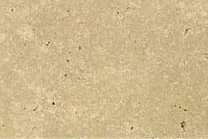| Other Names | Denizli Traverten, Denizli, Beige Travertine, Denizli Yellow Travertine | |
|---|---|---|
| Availability | Inquire | |
| Finishes | Polished, Honed, Sawn, Rockfaced, Sandblasted, Tumbled, Acid Wash, Antique | |
| Country of Origin | Turkey | |
| Absorption | 0.01 | |
| Fire Performance | 0 flame spread (per ASTM E 84) | |
| Freeze Thaw Resistance | Good | |
| Panel Sizes | Up to 4'×8' (1220mm×2440mm) | |
| Structural Performance (on Honeycomb) | Excellent |
Denizli Travertine Panels by StonePly
Denizli travertine was formed in an ancient warm spring. Calcium carbonate from the mineral water crystallized and formed the beautiful and distinctive Denizli travertine. Pure calcium carbonate crystals are white and the coloration in the travertine comes from other minerals. Denizli travertine is porous with numerous voids. This pitting is what gives travertine its beauty and interesting appearance. When used as a cladding, water can quickly pass through the voids in solid travertine. With StonePly, the aluminum forms a solid barrier to water as well as serving to strengthen the travertine face of the panel. Denizli travertine may be specified as filled or unfilled. With filled travertine the voids are filled with a special grout.
Denizli travertine was formed in an ancient hot springs. Travertine is a calcium carbonate stone sometimes referred to as travertine limestone or travertine marble, but travertine is different than either. In the formation process, numerous voids are created in the travertine. Denizli travertine gets its interesting appearance from these voids and cavities. When used as a building cladding travertine is porous and will allow water to pass through the cavities in the stone. With a solid aluminum backing, StonePly both strengthens the travertine panel and prevents moisture from passing through the wall. Denizli travertine is available either filled or unfilled.




